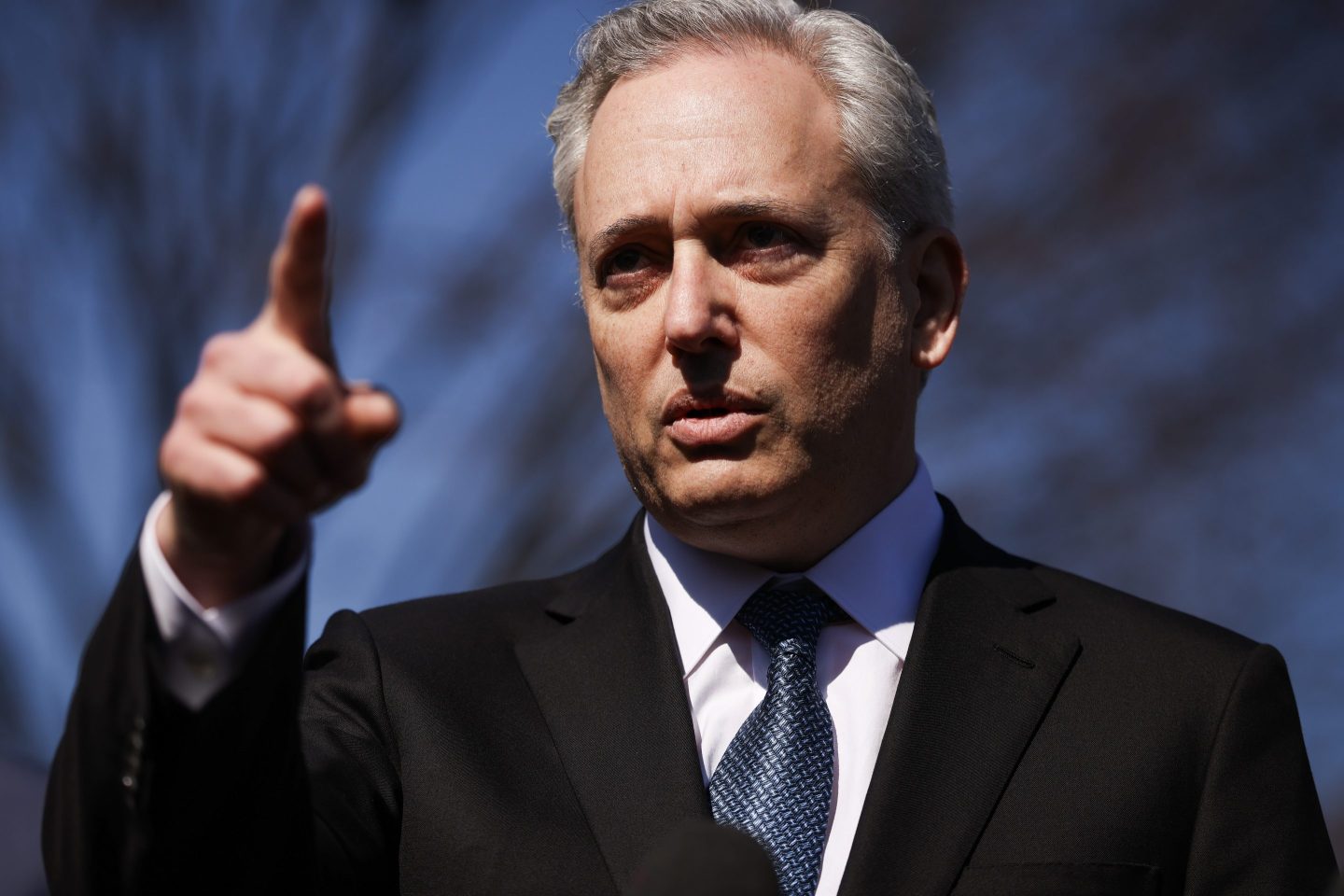Hillary Clinton’s economic speech Tuesday was all about why Donald Trump would tank the U.S. Economy. That is not a tough case to make.
From what little we know of Trump’s economic plans, they look like a blend of populism. It’s Reaganomics on steroids — and that’s without considering anything truly crazy he might do. The upshot of his plans are: reduce taxes on individuals and corporations, while throwing the public a bone by closing some tax loopholes used by the rich. The result, according to economists like Mark Zandi at Moody’s, is that the government’s tax revenue would dramatically decline, but spending would remain roughly the same, given that Trump hasn’t laid out any real areas of trimming.
That would mean more debt and probably a growing deficit, which is exactly what happened during the Reagan era. The “cut taxes and everything will be great” assumption is Trickle Down 101, despite the fact that there’s very little recent evidence that cutting taxes has provided any kind of substantial growth boost. It didn’t for George W. Bush in 2001 or 2003, and it didn’t for Barack Obama, either. Meanwhile, Clinton had plenty to chew on with Trump’s worrisome comments about “playing with debt” and his multiple bankruptcies.
But while Clinton’s speech was factually accurate – yes, a Trump presidency would very likely spell bad news for the U.S. Economy – she needs to go further and inspire voters with her own view. That’s the part of today’s talk that was lacking: a vision of the future that gets people excited.
As I’ve written before, that’s not just a matter of putting Bill in charge of the economy and saying the 90s were great. She needs to tell us what she would do differently — and even better — than her husband. There’s plenty of low-hanging fruit there. In her Columbus speech Tuesday, she touched on the changing nature of the workforce, for instance. She should grab this idea with both hands. The truth is that whoever the next President is, he or she will have to deal with continuing changes in the labor force. Lower paying service jobs are growing relative to higher paying manufacturing positions, the gig economy is spreading to more parts of the economy, the corporate-social compact is broken, and the public safety net isn’t catching all the people that it should. Many working people, in particular working class white men, are experiencing a “falling down” scenario in which they lose jobs and never regain them.
Going forward, this is the group that Clinton will need to speak to. They are the voters who suffered from trade deals cut by her husband in the 1990s (a point that Trump exploits well, even though his own trade view is deeply flawed). She needs to expand on what a 21st century labor market would look like, and what the government needs to do to make sure that more workers across more areas of the economy aren’t left short-changed. I hope that her next speech has more on how to ensure that the “sharing economy” doesn’t become a zero sum game and how workers hurt by the shifts in the global economy could be brought back into the employment market. It will also be interesting to see how Thursday’s so-called “Brexit” vote in the U.K. Might play to Clinton’s strengths. I’m betting that she’ll seem like the better candidate in the (still small) event that a U.K. Vote to leave the European Union triggers a major global market event.
Foroohar is an assistant managing editor at TIME and the magazine’s economics columnist. She’s the author of Makers and Takers: The Rise of Finance and the Fall of American Business.
This article was originally published on Time.com.












